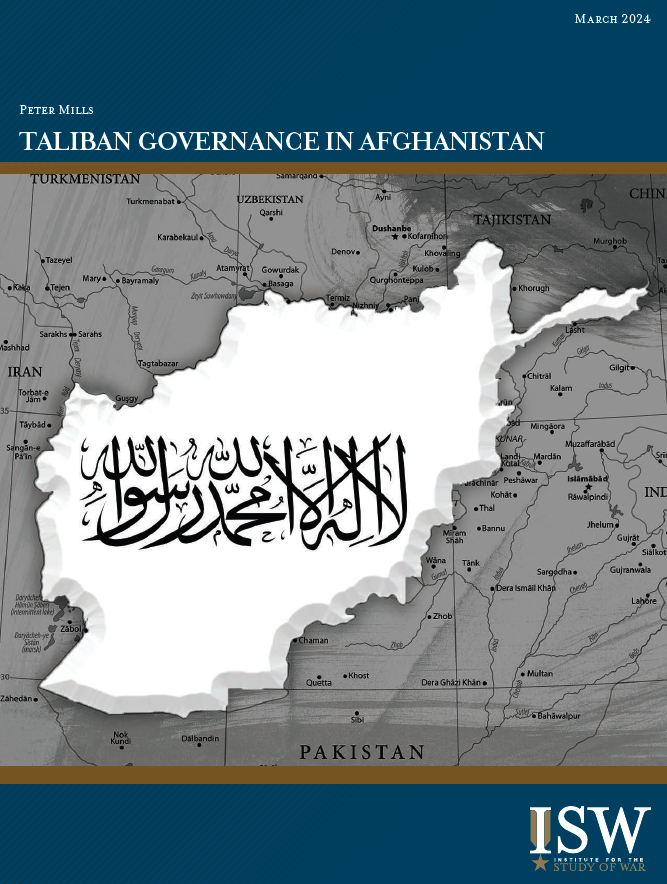Taliban Governance in Afghanistan
By Peter Mills
March 29, 2024
Click here to download the full report.
The Taliban achieved its primary objective by taking over Afghanistan in 2021. It now presides over a weak state that is unable to address long-term socio-economic and security challenges. Supreme Leader Hibatullah Akhundzada is worsening tensions within the Taliban as he expands his power within the regime and his policies are exacerbating the economic crisis the country faces. The Taliban faces opposition from domestic groups, which it can suppress in the short term at the cost of aggravating their underlying political grievances over the long term. The Taliban also provides a safe haven for Salafi-jihadi groups that it does not control and is permitting to gain strength. It is unlikely to be able to restrain or prevent those groups from conducting an attack outside of Afghanistan should they choose to do so.
The Taliban’s inability to address the long-term challenges it faces will render it vulnerable to growing domestic opposition and degrade its ability to control Salafi-Jihadi groups in Afghanistan.










